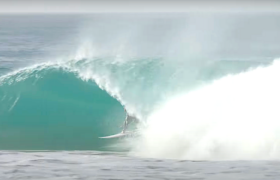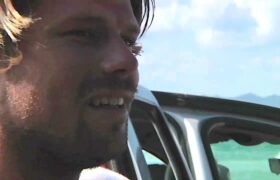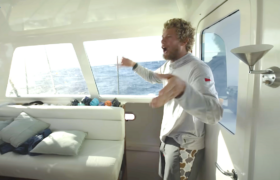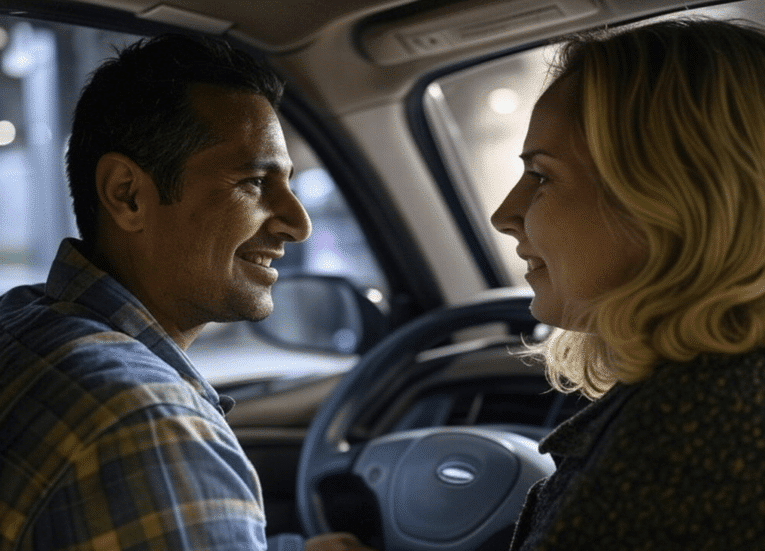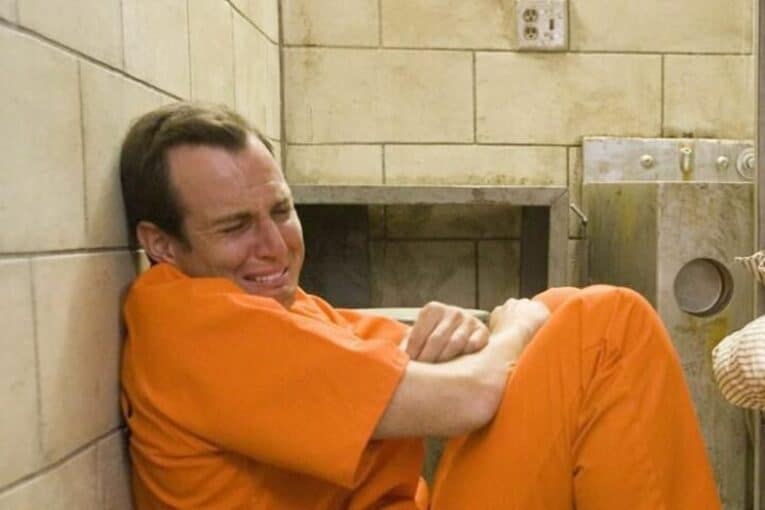"The ocean is my happy place. It gives me space, soothes my senses and washes away my worries. It’s his metaphor for the unknown, the threat and despair."
I still remember the joy of catching that first glimpse of water, the endless horizon and the sound of the waves rolling in after a steep climb through sandy dunes. Usually after a two-hour drive, which seemed like an eternity from my five-year-old perspective, because we didn’t live near the sea.
We actually lived below sea level, in a medium-sized village in the south of the Netherlands.
My casual appreciation of the sea turned into a love affair when a friend threw me on a surfboard 25 years later. As soon as she pushed me into a wave, two thoughts popped into my head: ‘I want to learn to surf’ and ‘Not here in brown, choppy water’. That very same day I booked a surf safari in Portugal and the rest is history: the sea and I are in a long-term committed relationship for life – and I have never mastered a proper pop-up without using both knees.
In 2014, I was approached by a retired couple from Honolulu through the AirBnB platform. They asked if they could rent my apartment. After making contact, they suggested that they would also be open to a home exchange. They had grandchildren in Amsterdam and wanted to spend time with them, and I could stay in their apartment on a surf spot overlooking the Pacific.
It sounded too good to be true, and it did feel that way for all the times we swapped homes. I spent three to six months a year in Hawaii, surfing every day, working remotely and meeting people I still consider friends.
Living on Oahu made me feel incredible. Daphne 2.0. Calm, focused, happy and at ease. I didn’t have any scientific evidence to back up my gut feeling that I was a better version of myself in Hawaii until I read Blue Mind, a groundbreaking book by marine biologist Wallace J. Nichols about the remarkable effects of water on our health and well-being. Combining cutting-edge neuroscience with compelling personal stories he shows how proximity to water can enhance performance, increase calm, reduce anxiety and even increase professional success!


This knowledge sparked a new quest: I wanted to live as ocean-centric as possible. Being a single, self-employed freelance art director and digital nomad avant-la-lettre made it easy: I could travel whenever and wherever I wanted. For years I split my time between the Dominican Republic, Australia, Hawaii and Amsterdam, with a few outlier weeks here and there in landlocked Switzerland to be a proud aunt to my sisters’ boys.
I have met countless people on my travels. Many stories were shared in the line up waiting for waves, or on land afterwards. A middle-aged American guy I met at a surf spot in Cabarete showed me that surfing is all about surrender. To the wave, to the swell, to the rhythm, to yourself. He had the best rides on all kinds of waves – and only revealed to me a few days later that he was blind.
It wasn’t just the people I met, the ocean itself became a faithful friend, especially in difficult times. In the salt water I could forget everything, stop worrying and just be present. The ocean helped me get back on my feet after a broken relationship. It gave me back my self-esteem, strength and vitality. And during three intense years of IVF and hormonal fertility treatments, the sea was my saviour. As soon as I realised that I would never be a mother, I bought a ticket to Sri Lanka, which at the time was the cheapest way for me to work through my grief – surfing without a wetsuit in reasonably warm water.
I was so used to taking pleasure from the ocean and turning to it in times of need – and surrounded by like-minded friends – that it never occurred to me that the ocean does not mean the same thing to everyone. Until yesterday.
I had just flown from Amsterdam to Sydney 24 hours earlier. Slightly jet-lagged, I took an Uber from Bondi Beach to Brookvale to buy a new longboard that was on sale. I asked the driver if he would be willing to wait and take me ánd the new board back to Bondi. He said he would, and he did.
During the 105-minute ride, Farooq told me his life story.
About growing up in rural Pakistan, where every 12-year-old boy knows how to use an AK-47. Where women wear burqas, and every family has more than two enemies in neighbouring villages. He told me how he fled the country when the Taliban invaded his hometown and killed two relatives. How he went to Malaysia on a visa and was smuggled out of Indonesia on a tiny boat with 38 other refugees. How they spent 3 days and 3 nights at sea, in a leaky boat with a broken engine and the constant threat of sinking, not knowing how to swim. How most of the passengers suffered from motion sickness and were constantly vomiting. How they were given a little fresh water three times a day and a banana. How they finally reached Christmas Island, an Australian territory in the Indian Ocean, and how they were immediately taken to a detention centre. How it felt like a prison, and how all he could see from his confinement was the ocean. How he hated that view.
Salty tears welled up in my eyes at the stark contrast of our lives. Here I was, sitting in his car, with the brand-new surfboard between us, a symbolic divider between two very different, almost alien, worlds. How the ocean is my happy place, how it gives me space, soothes my senses and washes away my worries. How it’s his metaphor for the unknown, the threat, the despair and the distance between where he is and where he’d rather be.
I thanked him for sharing his story and gave him a bigger tip than I normally would. That evening I paddled out on my brand-new board in my beloved ocean with mixed feelings. Empathy for his experience and gratitude for mine.
